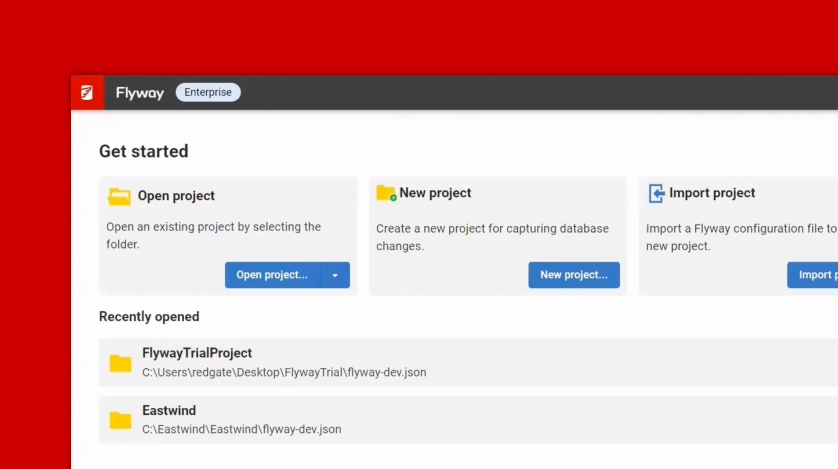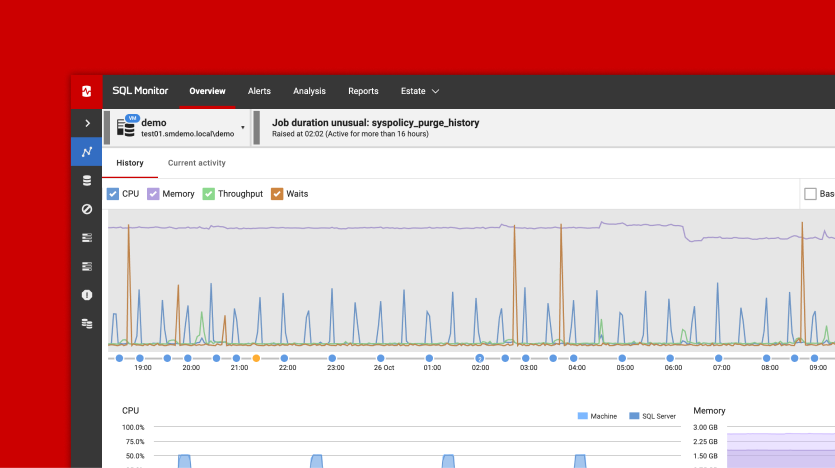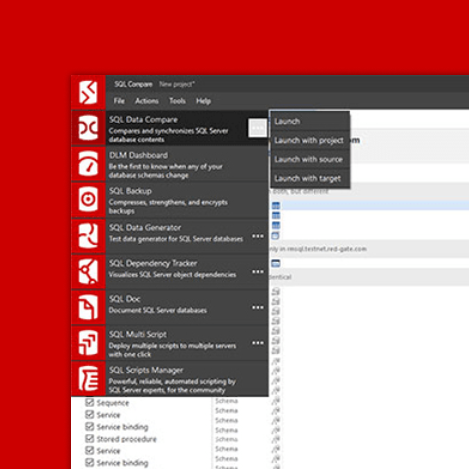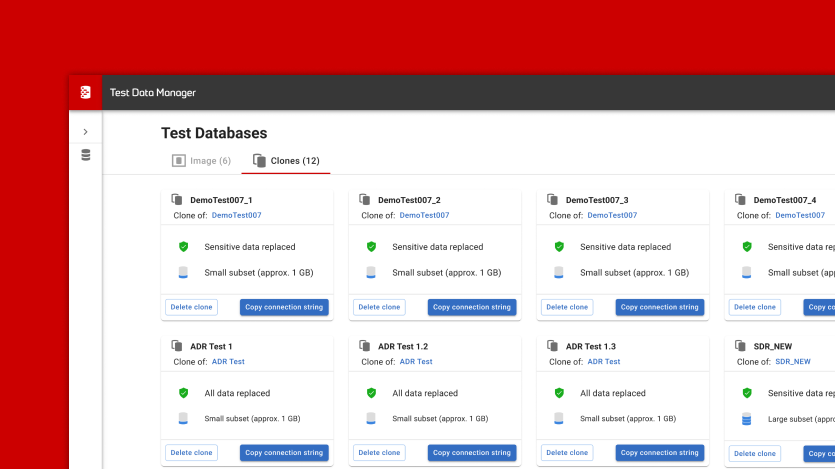Redgate’s roadmap for cross-database DevOps
At Redgate, we strongly believe that all databases should be managed and orchestrated in the same way, with the same standards of security and quality in releases. For the past few years, we’ve been leading the adoption of database DevOps by focusing on the most challenging parts of the process like version control, continuous integration and making deployments consistent, predictable and repeatable. Our solutions help automate the process of testing and promoting database changes across the pipeline, just as you would expect to do with application code.
That’s not just with the popular database platforms like SQL Server and Oracle. Our 2021 State of Database DevOps report revealed that 70% of organizations now have more than one database management system in use, and 48% have teams working on three or more different databases.
This shift to cross-database use prompted us to acquire the most widely used database migration engine, Flyway, in 2019. Flyway works with over 20 database systems and supports any type of user across different database technologies like SQL, Oracle, PostgreSQL, MySQL, and many more. By making it the underlying engine of our DevOps technology, we can help teams working with a wide range of database environments, effectively out-of-the-box.
What’s important is that Flyway is an open source framework, and the free Community Edition has been downloaded by millions of users. We continue to maintain this aspect of Flyway and we’re committed to supporting the huge Flyway community by working on features that will bring deployment, performance metrics and insights to every user, along with further database and cloud compatibility. We want to make sure that Flyway is the easiest way to get started with database DevOps, with community users making it part of their team best practices and embedding the framework in their delivery process.
While we continue to invest in the Community Edition, we also have a Teams Edition with more advanced features of interest to organizations. On top of this, Flyway has become the foundation for Redgate Deploy, our enterprise-level solution, where we focus on customers with more complex requirements who want to automate the entire end-to-end release process.
However, that’s not the end of the story. We want to advance database DevOps further to make it as easy as it is for application code changes, regardless of the size, complexity or flavor of the database. To achieve this, we’re focusing on three key areas in our roadmap.
Scaling beyond SQL Server and Oracle
While we’re committed to the SQL Server community and will continue to grow it, there is a clear need to support multiple database technologies like Oracle, PostgreSQL, MySQL and other databases. With the majority of organizations now using more than one database, there’s a requirement to standardize DevOps processes across databases and platforms.
With our existing SQL Server and Oracle DevOps solutions, we support thousands of customers, who make over 40,000 database migrations every month. Redgate Deploy already offers advanced capabilities with SQL Server and Oracle, and gives large IT teams a common framework to automate the end-to-end release process within a single solution.
Regardless of a team’s size, complexity, or the diversity of the database environment, Redgate Deploy is compatible with multiple relational databases, and we continue to advance the level of automation and efficiency it offers in the DevOps process.
To support the transformation across more teams and technologies, the roadmap for Redgate Deploy is to offer automation capabilities to other popular databases. This means that in the same organization, different delivery teams will be able to standardize the process and work in the same way through the suite of solutions from Redgate.
This is important for many organizations because the Database DevOps report revealed that automation is a key factor when identifying the top performing IT teams. Their database deployments are faster and more frequent, and at no expense to the overall quality of the releases. So we want to make database DevOps as easy as it is for application code changes, regardless of the size or complexity, or make-up of database estates.
Providing realistic development and testing data
Another area we’re working on is making the development and testing of database code much more efficient. We know it’s not easy to replicate database copies that can be used by developers for testing and viewing the CI process. Our Database DevOps report showed that 70% of respondents are still developing in shared environments with some of the inherent limitations this way of working creates.
This is one of the greatest barriers to database DevOps because CI/CD processes are predicted on the use of realistic data environments that are recreated almost instantly each time a change is committed or deployed. That’s not easy to do when you have a large and complex database, and even more so if teams are working remotely. Providing realistic data at scale, and safely, is challenging and creates one of the biggest and most frequent trade-offs in DevOps: choosing between rigorous testing and speed of delivery.
We believe that data virtualization technology to a large extent eliminates this trade-off. SQL Clone, our virtualization solution for SQL Server, can provision production-like database copies in seconds – something that in the past used to take our customers a few hours. They also use a fraction of the storage of the original, so in many cases it also becomes cheaper.
SQL Clone is already included in Redgate Deploy and integrates with its release automation capability to fully support end-to-end DevOps with frequent testing and production-like data. We continue to invest heavily in data virtualization technology to develop it further, by utilizing containers and extending support to multiple databases like Oracle, Postgres and MySQL.
That means we will bring to market a product that can be used across multiple databases and not just SQL Server. This combined with our data masking capabilities for SQL Server and Oracle will provide a way to make testing more efficient, and will also help to support a shift left approach for database changes, while ensuring data is handled safely. This will make it the most comprehensive database DevOps solution on the market.
Offering insights into DevOps metrics
The third key project we’re working on this year is about helping to track performance and uncover insights on where the development process can be improved. The way we want to achieve this is to build on the strength of our Flyway Community Edition with a new service, Flightpath, which visualizes Flyway deployments and will be available to every user of the Community and Teams Editions of Flyway, as well as Redgate Deploy.
Flightpath gives Flyway users insights on the speed and frequency of releases, and benchmarks them against industry averages. We use metrics like these within the Flyway team, and it’s pushed us to maintain a frequent release cadence, react quickly to problems in new releases and work on our internal processes so that actually doing releases is fast and easy.
There’s a lot of work ahead in the development of Flightpath, in terms of getting more feedback around prototype dashboards and investigating options before we launch it later this year. If you’re interested in knowing more or taking part in the research, read this blog post from the development team. We’d love to hear from you.
Summary
As you can see, there are a lot of things in the DevOps pipeline for Redgate this year. We have ambitious plans, as always, to deliver products that can help our customers become leading DevOps adopters.
We’re committing to investing beyond SQL Server to support multiple database technologies like Oracle, Postgres and MySQL; enabling end-to-end DevOps with frequent testing and production-like data; and providing increased value for every Flyway user with Flightpath.
That’s quite a challenge and, as always, we welcome feedback and engagement to guide our work.








